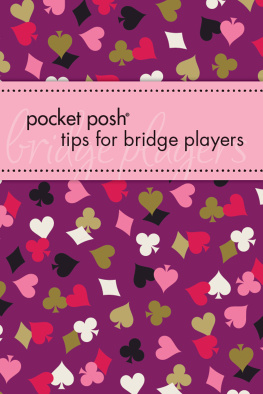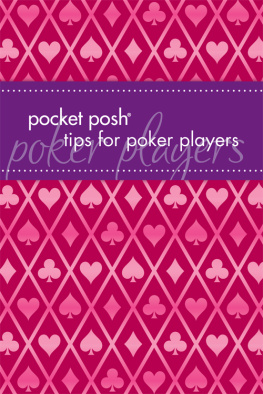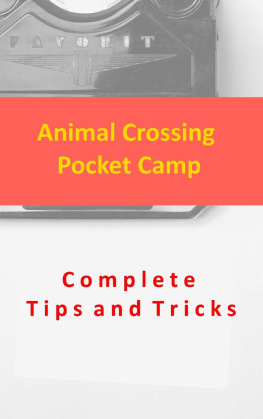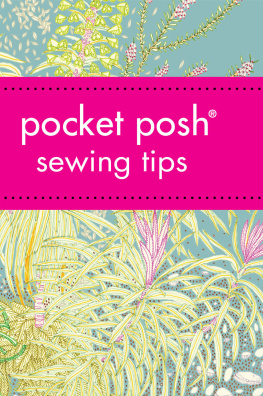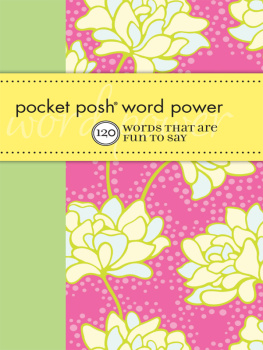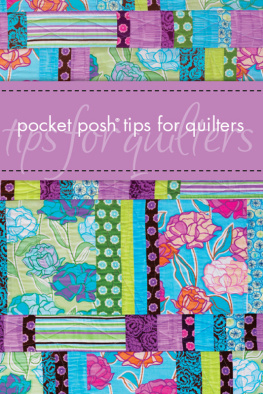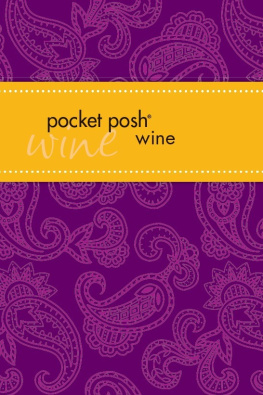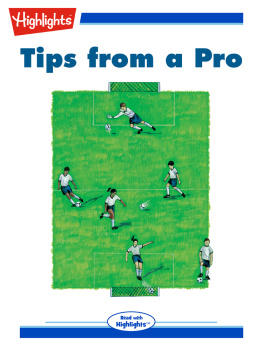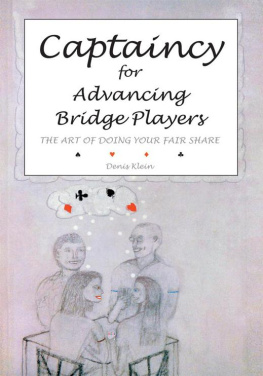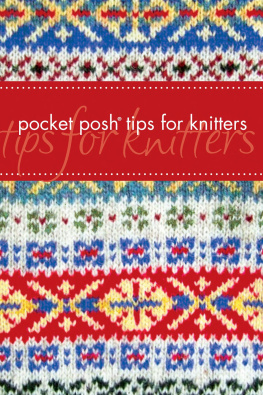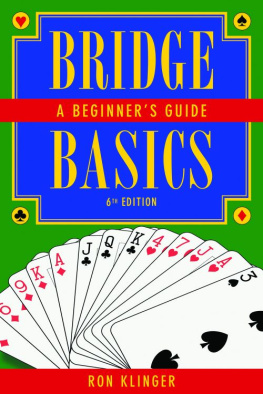from the author
This book is not intended for beginners or experts. However, if you are part of the 90 percent of bridge players who are neither of these, this book is for you . The tips that follow are guaranteed to improve every facet of your game.
As you know, bridge is the most interesting card game known to man. It is also not easy. Every hand presents a challenge in bidding, defense, or declarer play, and no player is surprised when he encounters a hand that provides suspense in all three areas.
Of course, if bridge were easy, we would not be as fascinated by it as we are. It is the challenge and variety of every new hand that keeps us coming back for more (and more, and more).
Many of these tips are a direct result of questions from players. All my books and classes focus on practical topics players encounter over and over again in bridge games. I am confident that this is a book you will want to refer to for years to come.
Pocket Posh Tips for Bridge Players is not a typical bridge textbook. This book does not focus on one topic. Instead, it is an assortment of practical tips and useful examples that are sure to help you know what is worth knowing.
No author can promise that his book will enable someone to become a great declarer or defender. But all players, regardless of their skill level, can significantly improve their bidding once they are exposed to some little-known truths. All of my books focus on important bidding secrets that your peers never heard of, and Pocket Posh Tips for Bridge Players is loaded with them.
TERMS IN THIS BOOK
Balanced Hand: A hand with no singleton or void or at most one doubleton. Either 4-3-3-3, 4-4-3-2, or 5-3-3-2.
Fit: A suit in which the partnership has eight-plus cards.
HCP: High card points.
Intermediate Cards: Tens, nines, and eights.
Misfit: A hand where both players have long suits, but their partners dont have support for them.
LHO: Left-hand opponent.
Pointcount-itis: A common affliction shared by players who mistakenly believe the key to bridge is number of HCP.
Preference: Making a choice between partners suits.
Quacks: Queens and jacks.
Quality Suit: A suit with four-plus cards and three-plus honors.
RHO: Right-hand opponent.
Rule of 20: A guideline used to decide whether to open a borderline hand in first or second seat.
Side Suits: Suits other than the trump suit.
Yarborough: A totally worthless hand.
OPENING BID INFO
May be light. Based on the Rule of 20.
1 of a minor = three-plus cards in the suit
1 of a major = five-plus cards in the suit
1NT = 1517 HCP
2NT = 2021 HCP
2 = strong, artificial, and forcing
2, 2, 2 = weak 2-bids; a good six-card suit; 510 HCP.
getting off to a good start
TWENTY RULES OF BEING A GOOD PARTNER
I have always believed that your attitude toward your partner is as important as your technical skill at the game.
Rixi Markus, one of the all-time great players
Half the battle of winning is being a good partner. Always observe the following:
Unless you are being paid to teach, dont give lessons.
Never say anything to your partner unless you would want him or her to say the same to you. If youre unsure if your partner would want you to say something, say nothing.
Dont result (criticize your partner for a normal action just because it didnt work this time).
Think twice before discussing the hand you just played. If you cant wait, be discreet.
Remember: You and your partner are on the same side and he or she wants to win as much as you do.
If you feel the urge to be nasty, sarcastic, critical, or loud, excuse yourself and take a walk.
If there is time between hands, do not discuss bridge.
If you choose to ask another player about a disaster, ask about your hand, not your partners.
Dont criticize or embarrass your partner in public.
Remember that bridge is only a card game.
Make sure that both of you have a good time.
Trust your partner; do not assume he or she made a mistake.
Although it may be unfashionable, it really is OK to be pleasant to a partner you live with.
Think before verbally analyzing a hand. Dont embarrass yourself with an inaccurate comment.
When you choose to play bridge with someone, its not fair to get upset if he or she does not play perfectly.
Never side with an opponent against your partner. Try to support him or her. If thats not possible, say nothing.
If you think youre too good for your partner and do not enjoy playing bridge with him or her, do everyone a favor and play with someone else. That is much better than being a martyr. However, be careful before burning bridges.
Learn your partners style, regardless of how you feel about it. Dont expect your partner to bid exactly as you would. When your partner bids, consider what he or she will have, not what you would have.
Picture problems from your partners point of view. Seek the bid or play that makes his or her life easier.
Sympathize with your partner if he or she makes a mistake. Let your partner know that you like him or her, and always root for him or her 100 percent.
HE WHO KNOWS, GOES
Good bidding is based on the exchange of relevant information. You do not need to talk about every suit in your hand.
| West | West | East | East |
| A K Q J 10 5 | 1 | 1NT |
| Q 6 | 3 | 4 | 8 7 2 |
| A J 4 3 | 4 | 5 | K Q 9 8 5 |
| K | oops! | Q 9 7 5 4 |
West was delighted to jump-shift with his 20 HCP.
East was equally delighted to raise diamonds based on his great support. Based on his hand, East was 100 percent correct to bid 5 over 4.
Unfortunately, whether West passed 5 or bid 5 the five level was hopeless. West had to lose two heart tricks and one club.
What went wrong? There was no need for West to introduce diamonds when he always intended to play in spades. Opener should have rebid 4 at his second turn, promising a great hand with a self-sufficient suit.
The bottom line: When you know where you want to play, bid it.
TAKE A HIKE
Taking a walk between rounds is often the best remedy for your bridge woes.
There are times when you must get away from your partner and/or your opponents. You have probably just gotten a bad result. Dont sit around playing the martyr or glaring at your partner. As soon as you get a chance, just excuse yourself and leave. It does not matter where you gooutside, the restroom, or the water fountain are all fine choices.

